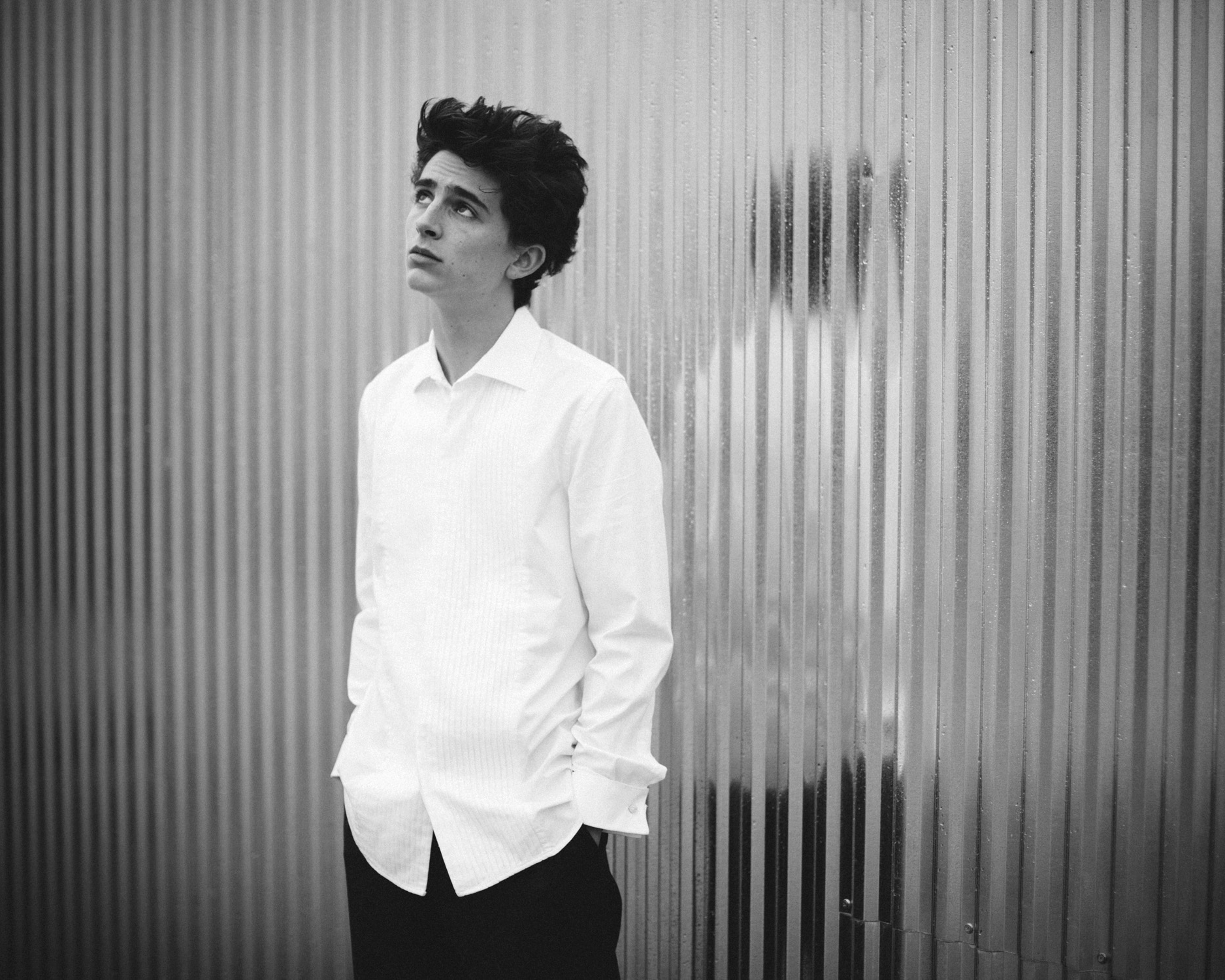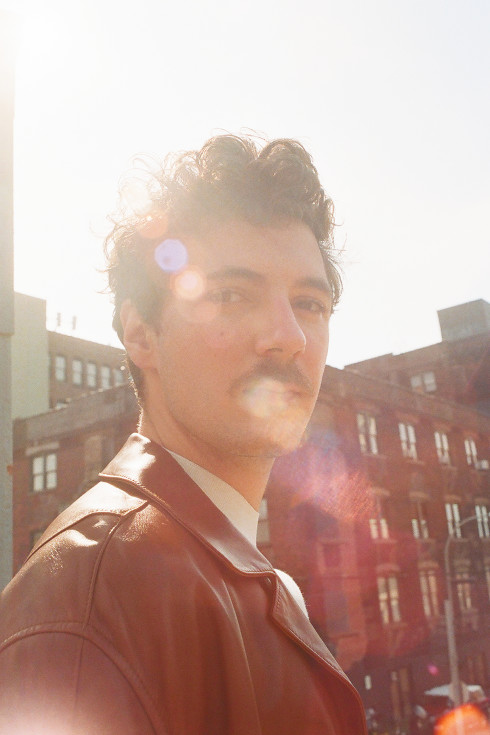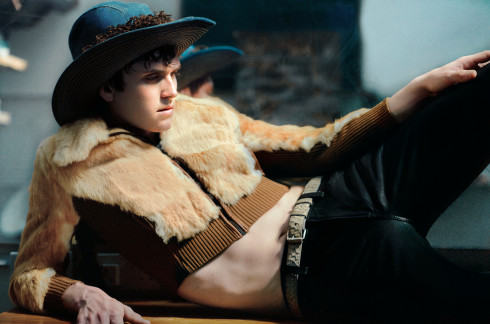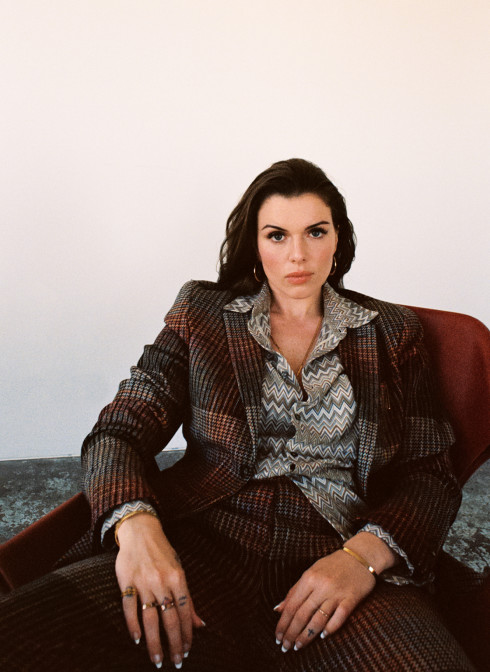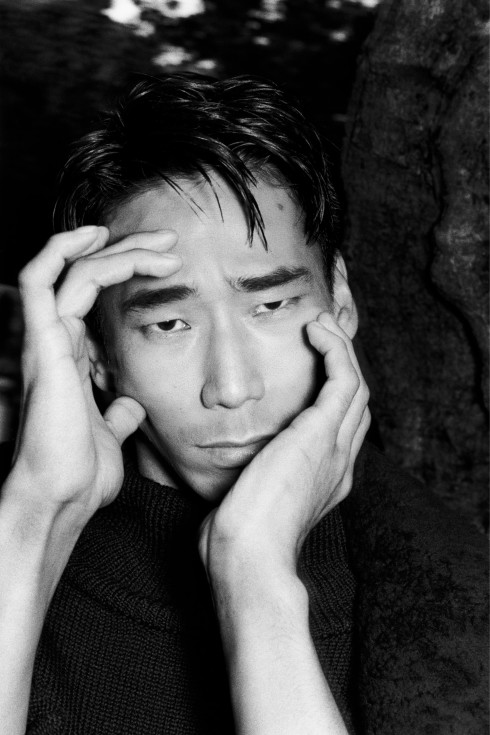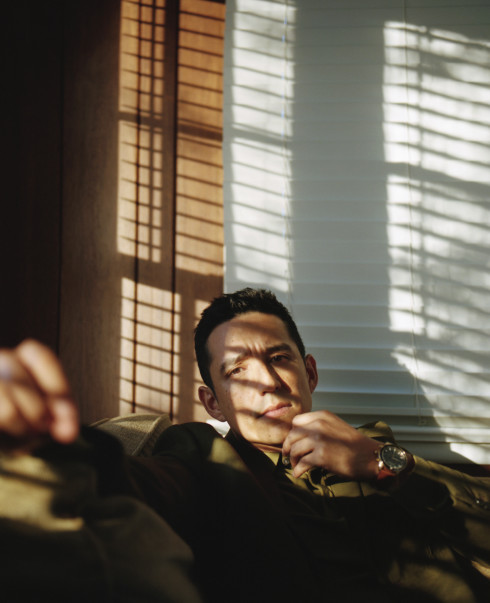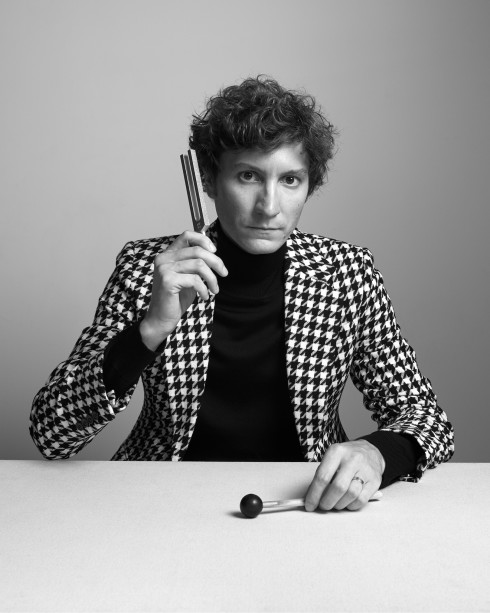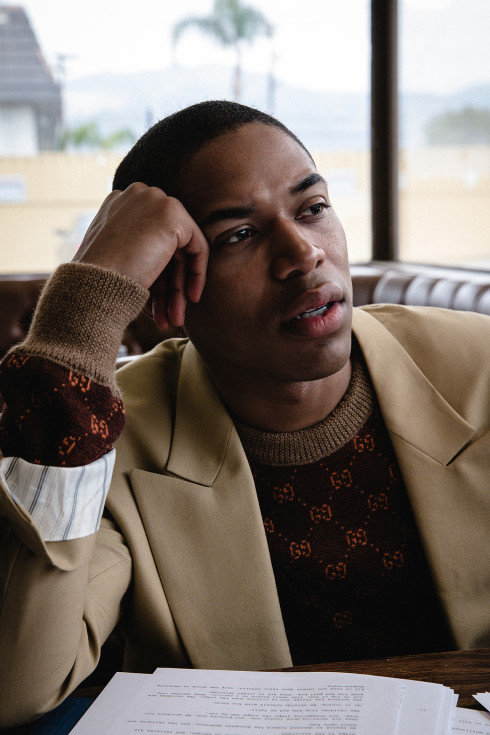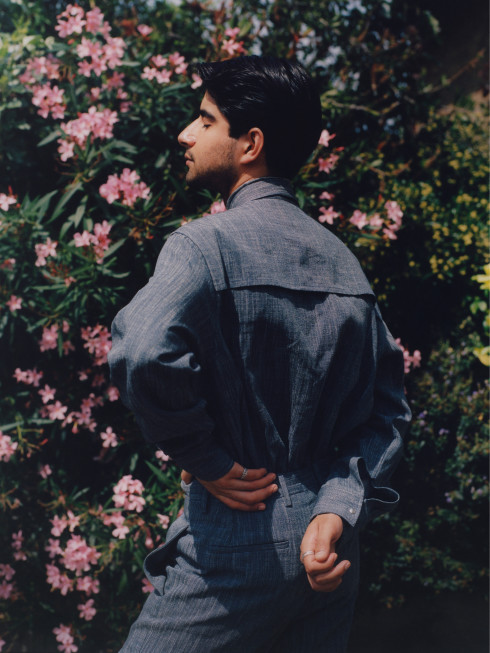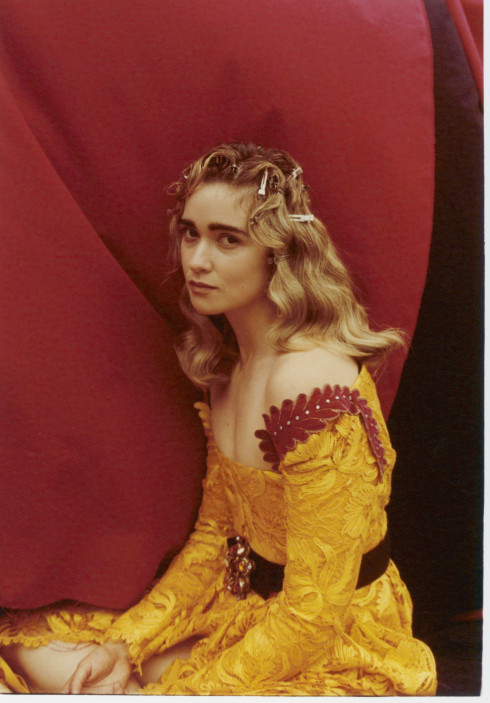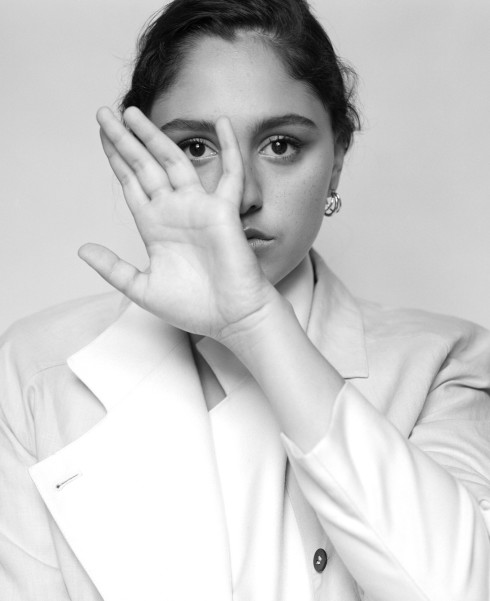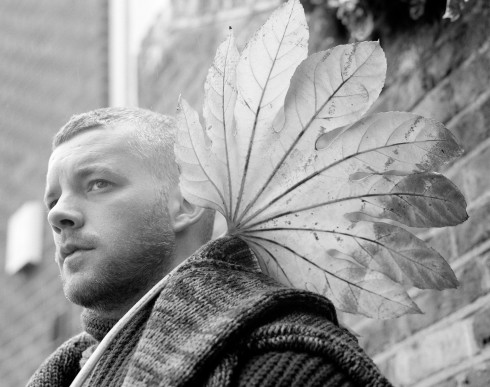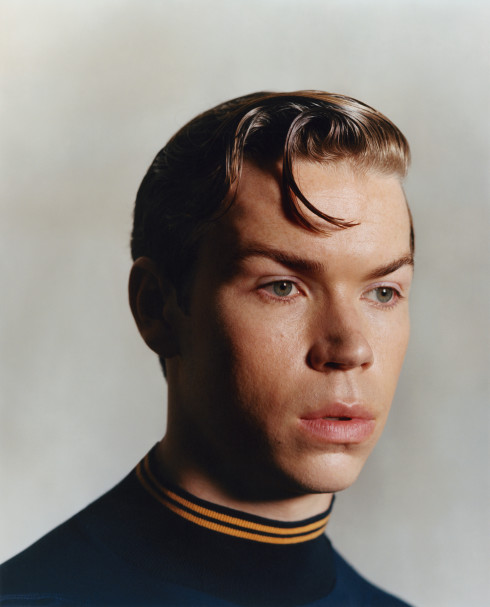
All clothing by Fanmail.
- By
- Jonathan Shia
- Photography by
- Richard Gilligan
Styling by John Colver at Frank Reps. Grooming by Nate Rosenkranz at Honey Artists.
TIMOTHÉE CHALAMET'S PERFORMANCE OF THE YEAR IN 'CALL ME BY YOUR NAME'
2017 has been a watershed for gay films. Moonlight achieved classic status when it took home the award for Best Picture—eventually—at the Oscars in February, and in its wake have come a slew of other movies that broached similar themes of sexual identity. French AIDS activism film BPM (Beats Per Minute) won four awards, including the Grand Prix, at Cannes; Eliza Hittman was named Best Director at Sundance for her coming-of-age drama Beach Rats; and God’s Own Country, about a Yorkshire farmer who falls in love with a Romanian migrant worker, has been celebrated as one of the best British movies of the year. But no film has been as revered as Call Me By Your Name, Luca Guadagnino’s adaptation of André Aciman’s 2007 novel about a teenage boy—played in a career-making turn by Timothée Chalamet—who falls in love with a summer guest at his family’s country house in northern Italy, finally released this weekend a long ten months after it had its première at Sundance back in January. “I’m just itching for it to come out,” Chalamet laughs the week before the movie’s opening. “It’s kind of surreal. We made this movie a year-and-a-half ago and I certainly don’t think any of us had the idea that we’d be talking about it this much.”
It is extremely difficult to find fault with Call Me By Your Name, which helps explain everything from its rapturous reception at Sundance to its continued position high up on many Oscar-prediction lists. A highbrow literary adaptation about a worldly, erudite family who switches comfortably between three different languages, the film comes with a brand-name crew in Guadagnino and screenwriter James Ivory, and offers a lush and sensuous recounting of the coming-of-age of Chalamet’s sensitive, whip-smart, and ultimately fragile Elio Perlman. “You don’t often come across roles this complex and contradictory and confused for a young character,” the 21-year-old actor says. “I read André Aciman’s novel and I felt like, ‘This is an accurate representation of the mania that can take place in a young person’s mind as it relates to confronting desire and shame and inhibition and ecstasy for the first time.’”
The film has been a long time coming. Chalamet first signed on, without auditioning, in 2013, and the project became an investment for him in more ways than one. “When I met with James Ivory and Luca Guadagnino initially, there was no screenplay available so the novel’s all I had. I went to the library at Columbia, where I was at the time, and they didn’t have it, but I book shared it from Harvard and I didn’t give it back for a year and I had a hundred-dollar fine on it,” he laughs. “So before I made any money from this, I lost money. It was more than worth it though.”
Half-American and half-French (hence the aigu in his name) and with a creative extended family, the verbose and cerebral Chalamet shares many traits with Elio, who annotates scores; speaks English, French, and Italian fluently; and makes a show of improvising on the piano in the style of various composers. His performance, which earned him the Breakthrough Actor award at the Gotham Awards last night, feels so seamlessly natural that Chalamet takes the time to stress their differences. “There’s a lot about this guy that is braver and more intelligent and more on the surface than I could ever be,” he says.
Aciman’s novel is largely an internal one, with Elio’s mind spinning through confusion, lust, bitterness, envy, passion, and eventually love—with all the fervor to be expected from a susceptible teenager—as he gradually opens up to Oliver, a graduate student who has come to assist his professor father for the summer. Every step of Elio’s tentative and delicate pas de deux with Oliver, played by Armie Hammer, is glowingly visible on Chalamet’s face, and the young actor says he took advantage of Guadagnino’s long takes—sometimes performed wordlessly—to sink into his character. “There were some scenes we would run with the dialogue and then we’d go, ‘Let’s see how it would play out if we cut the dialogue now that we know what the physical beats of this scene are,’” he recalls. “That’s why there’s this wonderful physical conversation sometimes. I don’t know if I’ll ever have the opportunity to just be in so many scenes again.”
Chalamet has taken to annotating his Instagram posts about Call Me By Your Name with the peach emoji, a reference to the most famous scene in the book, in which Elio masturbates with the assistance of a particularly juicy fruit. The peach makes its highly-anticipated appearance later in the film, but Chalamet says that moment was surprisingly not the one that made him the most nervous. He spent weeks before filming began learning Italian and practicing the piano, citing Elio’s musicianship as an essential part of his character. (Chalamet personally prefers Kid Cudi.) Music forms a major through line in the movie—John Adams’s gently propulsive “Hallelujah Junction,” which requires two pianists to perform, resurges in key moments—and Chalamet points to the scene in which he riffs on Bach for Oliver as the turning point of the movie. “That’s pretty much why I was there in advance,” he says. “It was really to get the piano down to the ability that it’s described in the book. The peach scene is very intimate and the physical description of that scene is quite revealing, but there was the idea that maybe that wouldn’t even be in there if it was no good. But the piano scene is so crucial to the book and the seduction between these two guys that it felt like, ‘We really have to get this right.'”
Like many of this year’s other gay love stories, Call Me By Your Name revolves around the relationship between Elio and Oliver rather than, as many earlier films, the tortured process of coming out. Elio is surprisingly unnerved by his attraction to Oliver, and his parents and friends are eminently understanding. Chalamet acknowledges that the film presents an idealistic vision, one that many people will not recognize—and especially not those who came of age in 1983, when it is set—but suggests that this hopefulness is exactly what has resonated so strongly with viewers. “It’s thanks in large part to films like Moonlight or Brokeback Mountain or Carol that have dealt with the pain of that experience—which unfortunately is the pain that a lot of people go through because of the prejudice that’s still so strong in our society—and there was a certain excising of that in those films,” he says. “What’s beautiful about this film is that it’s almost like the act two to those films, where perhaps there’s a universe like the universe in this film where there doesn’t have to be an antagonist or disease or a gang of prejudiced antagonizers, but rather it’s just an unabashed celebration of love is love is love. Heartbreak and the withdrawal of love is painful enough of an experience and rich enough an emotion to make a film out of it.”
After all, true equality is achieved not only when diverse voices are heard, but when that diversity is no longer the point. Call Me By Your Name is a gay love story but, more than that, it is simply a love story, and a particularly ravishing and heart-stopping one at that. “I think this has been affecting people on a visceral level,” Chalamet offers, “because it’s a reminder of what love is and what first love is and that the scar that is first runs deepest.”
Call Me By Your Name is out now.
- By
- Jonathan Shia
- Photography by
- Richard Gilligan
Styling by John Colver at Frank Reps. Grooming by Nate Rosenkranz at Honey Artists.
